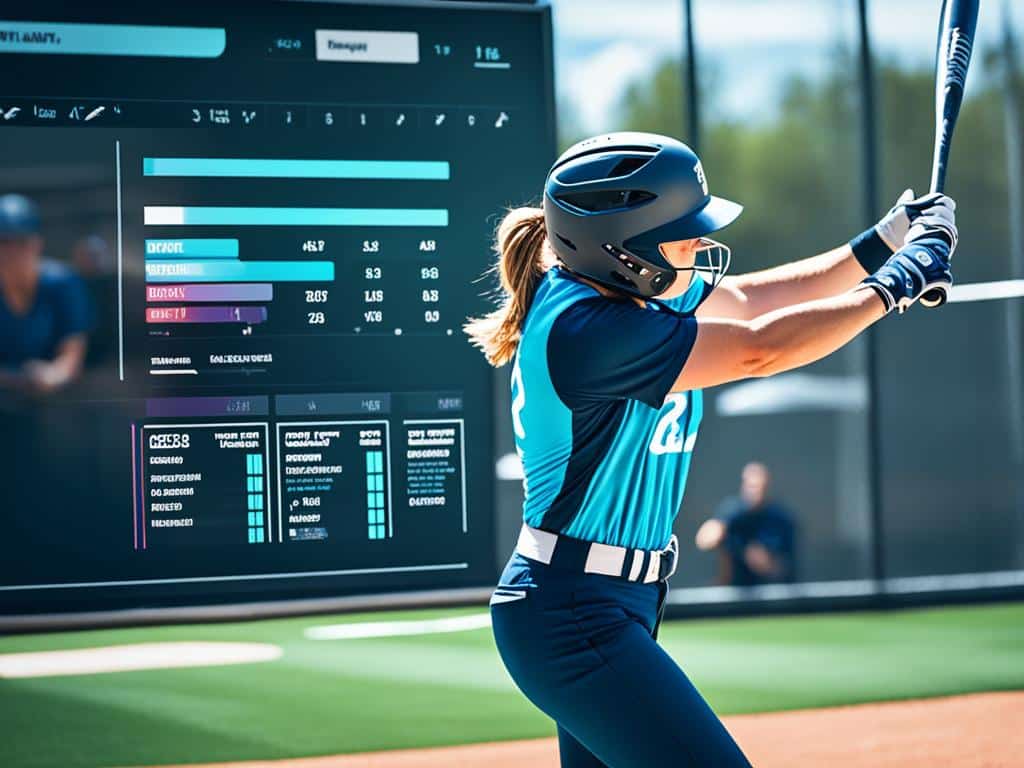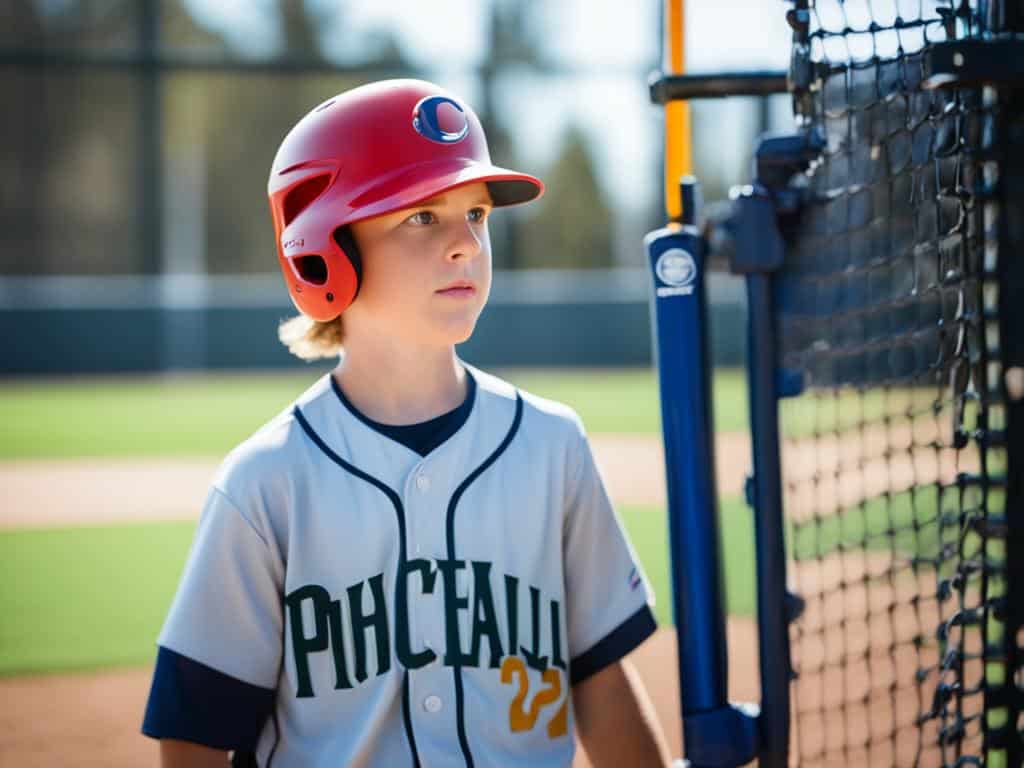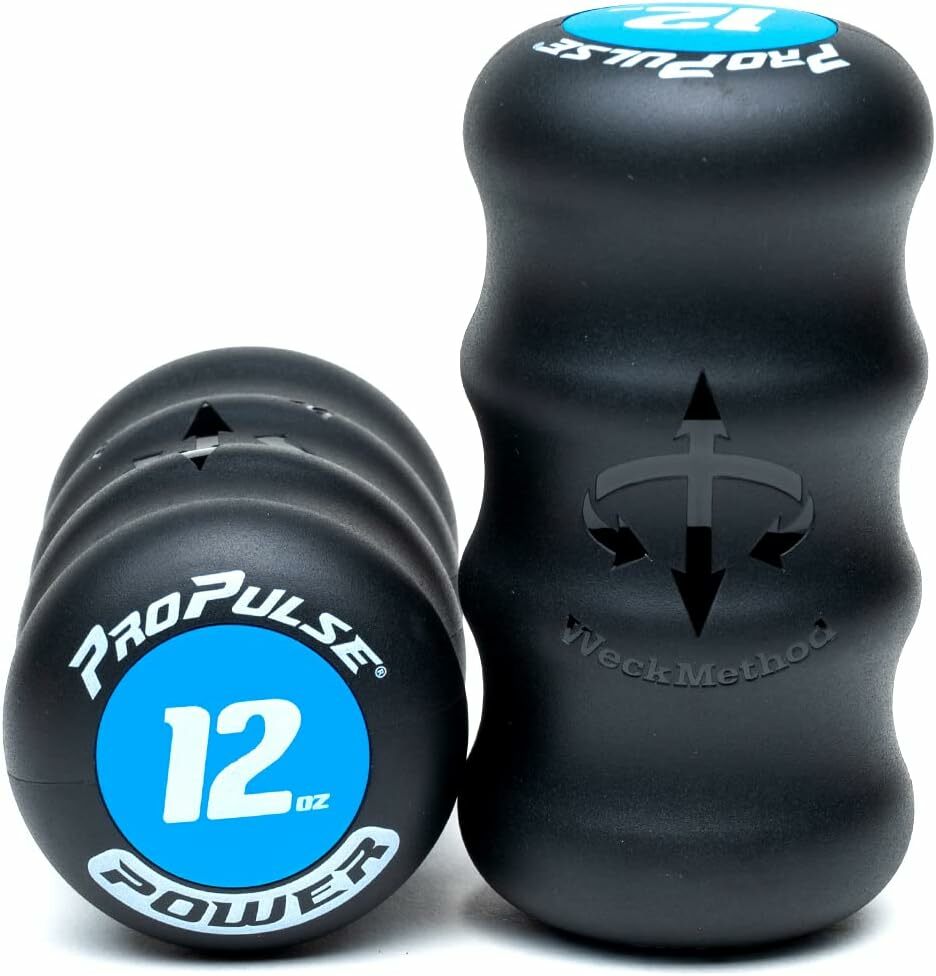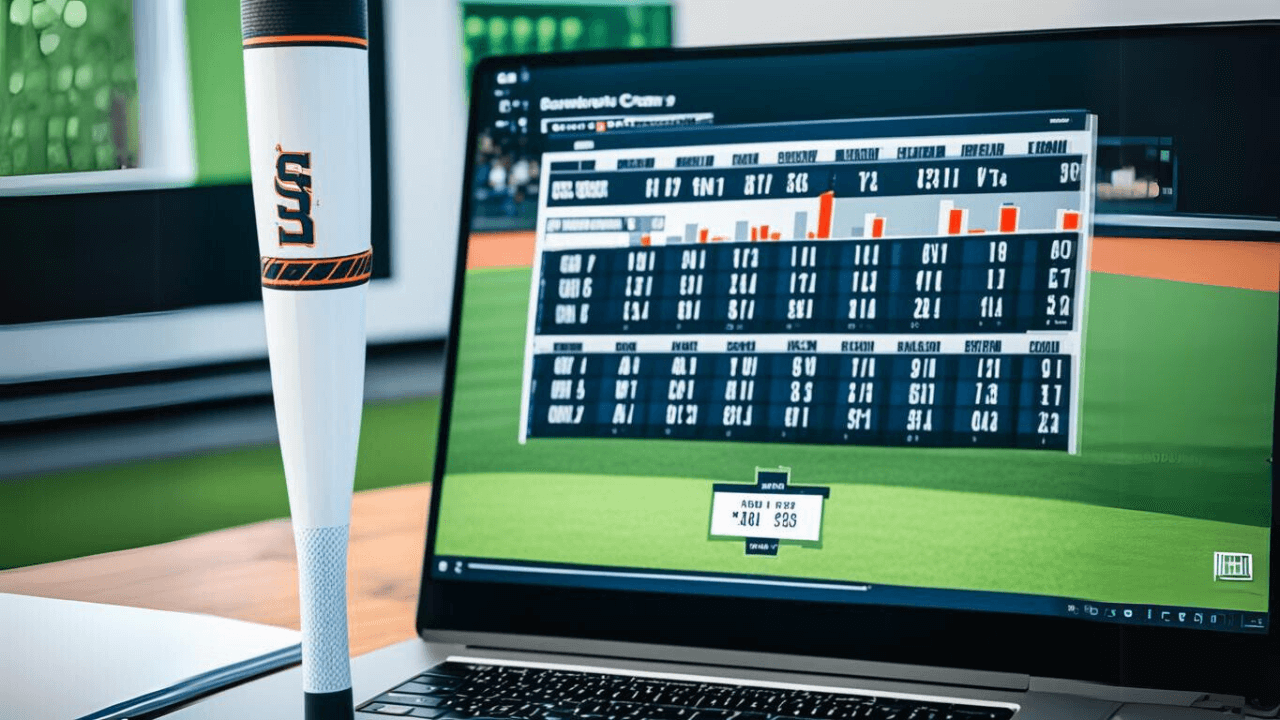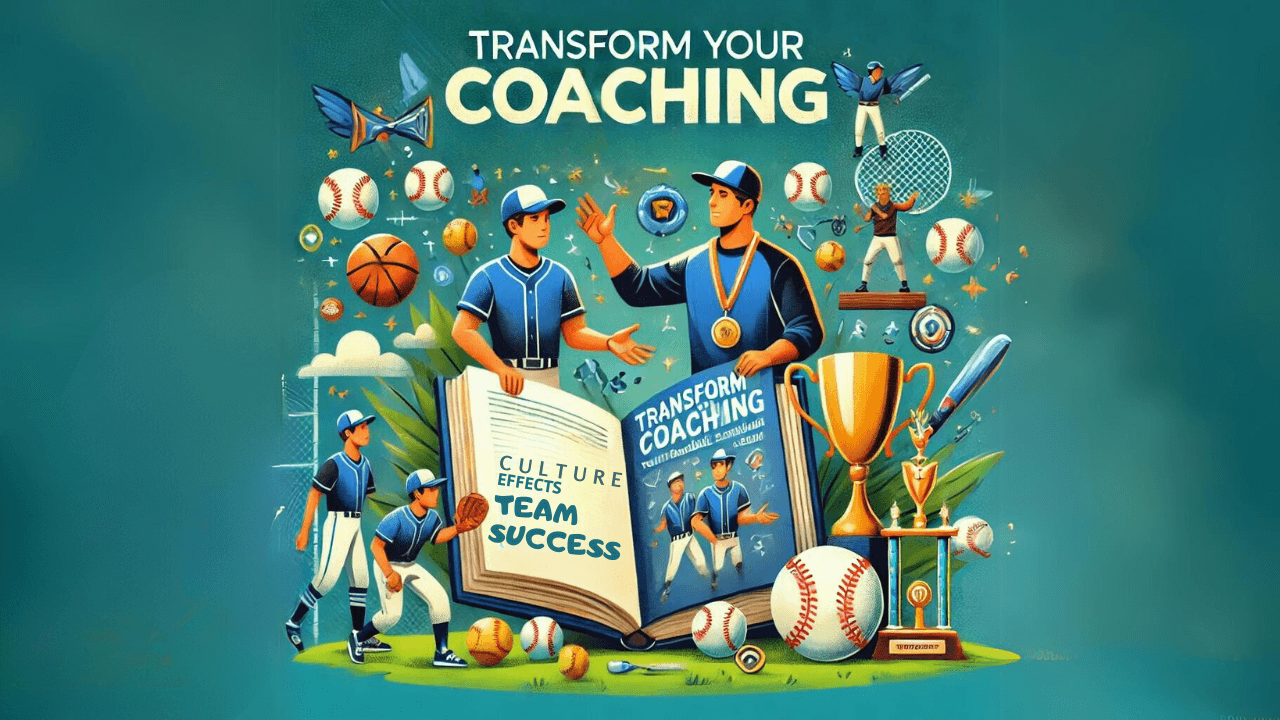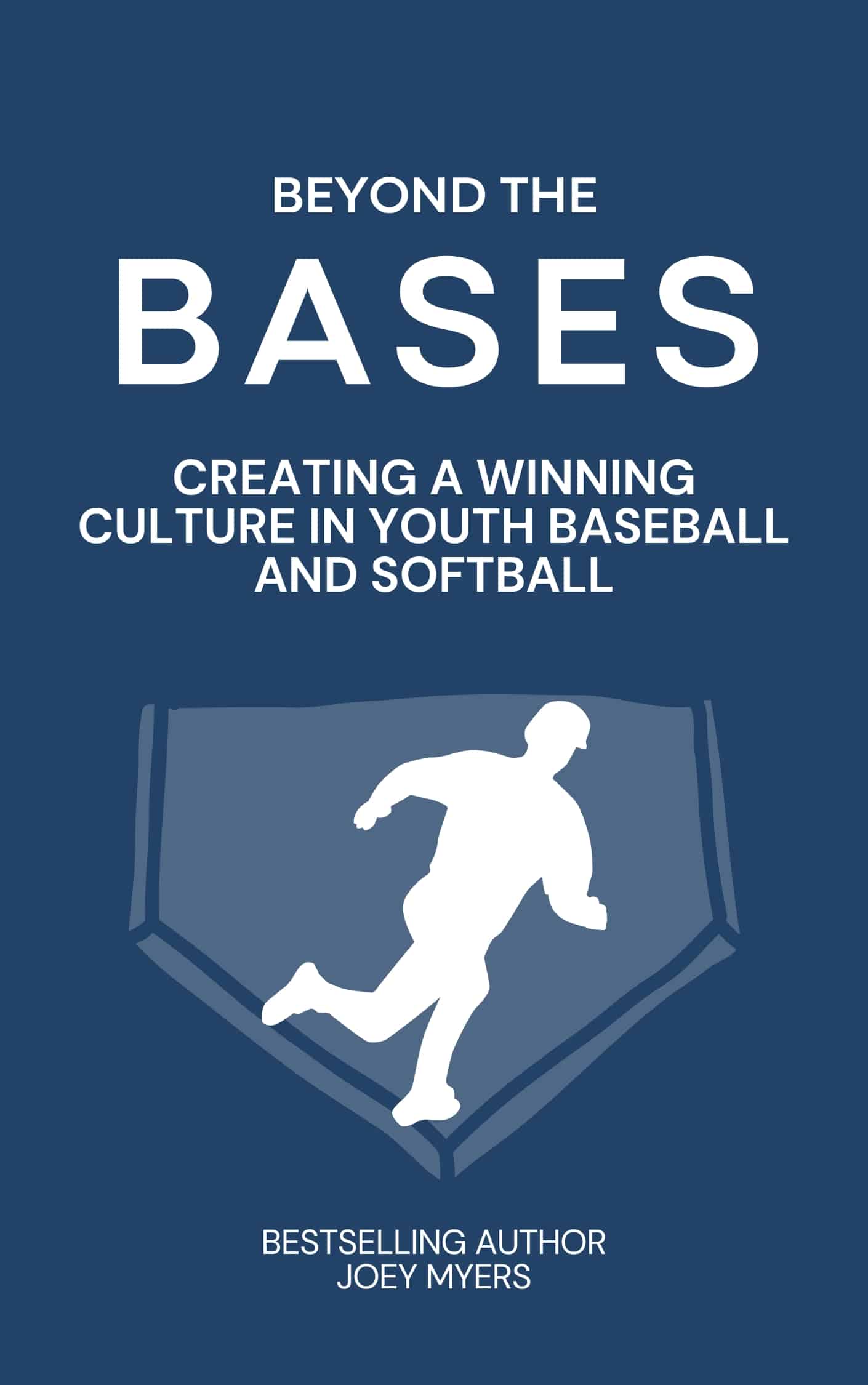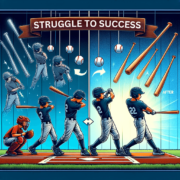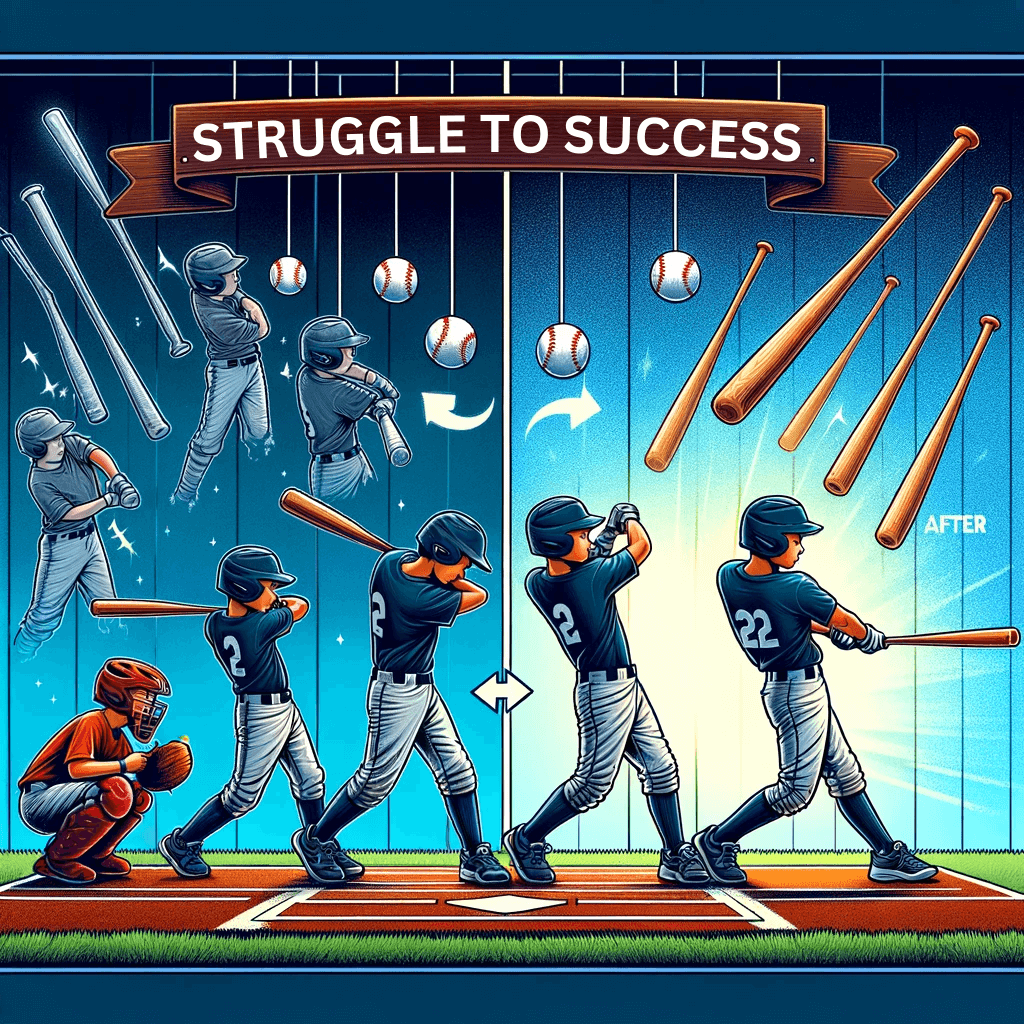
Stop Swinging Harder: How Pitch Recognition Unlocks Explosive Power
When I played baseball, I loved the excitement of stepping up to the plate. The crowd’s anticipation and the rush of adrenaline as the pitcher throws the ball are unmatched. The art of hitting is what makes the game beautiful to me. It’s about the perfect swing, the sound of the bat, and the joy of running the bases.
In this article, we’ll look at the best softball pitch recognition training programs. These programs are scientifically proven to boost your hitting skills. They can help you improve your batting average and your ability to stay disciplined at the plate. These tools will help you become a top player in the game.
Key Takeaways
- Discover the science-backed pitch recognition training that pro and college players use to gain an advantage
- Learn how just 5 minutes a day can significantly improve your batting average, strikeout rate, and on-base percentage
- Understand the difference between “pattern recognition” training and traditional vision or virtual reality approaches
- Explore the Standardized Pitch Recognition Test used by top teams to assess and track player progress
- Implement seamless team training with convenient mobile and TV-based options
Introducing GameSense: The Science-Backed Pitch Recognition Trainer
Unlock the secret to elite-level pitch recognition with GameSense. It’s a training program by Dr. Peter Fadde, a top expert in this area. Unlike old-school vision training, GameSense trains the brain to spot subtle cues from the pitcher and the ball’s path.
GameSense: Train Your Brain, Not Just Your Vision
GameSense is the top tool for improving pitch recognition, supported by years of research. At Southern Illinois University Edwardsville, players got better confidence and loved the VR training. VR training has boosted MLB hitters’ skills by 12% in key areas.
The Tampa Bay Rays were the first MLB team to get a VR cage in 2017. Now, almost every team has their own VR setup. Brock Weimer, a star player, said VR helped him hit 15 homers and achieve a .329 batting average.
GameSense uses “video occlusion training” to improve pitch recognition. Batters learn to identify pitches by release angle, arm speed, and spin. This method is changing how players train and play. Learn more about pitch recognition and how it can boost your game.
Young athletes sit a lot, which tightens muscles and makes them less active. They need 5 minutes of rest for every 20 minutes of screen time. Major League players track better than amateurs, showing that some players learn faster than others. Training in vision, tracking, timing, and footwork is key for top-notch pitch recognition and hitting. Check out the latest tips on pitch recognition and more.
“GameSense is the only scientifically validated tool for testing and training pitch recognition, backed by decades of research and proven to deliver results.”
GameSense focuses on data-driven coaching to help players reach their best with advanced tech and science. With GameSense, train your brain for better hitting and unlock consistent high-performance.
The Hunter vs. Fisherman Mindset: Mastering Plate Discipline
Mastering plate discipline is key to hitting well, but it’s often not well-understood or trained enough. As a data-driven softball hitting instructor, I’ve found that adopting a “Hunter” and “Fisherman” mindset can greatly improve a hitter’s skills. This leads to better performance at the plate.
The “Hunter” mindset means being aggressive and taking action when the pitcher is in the strike zone. Hitters with this approach are ready to hit when the chance comes, especially on fastballs and breaking balls. On the other hand, the “Fisherman” mindset is about patience and discipline. It’s waiting for the pitcher to throw a strike. This works well against pitchers without control, letting hitters get walks.
Learning these two mindsets helps hitters improve their discipline at the plate. They know when to be aggressive and when to wait. This skill is crucial for hitting well consistently, as shown by Barry Bonds. Through his training, Bonds walked 755 times and hit 209 home runs from 2001 to 2004, keeping a high batting average.
Nowadays, power hitters like Matt Olson and Elly De La Cruz often strike out over 200 times a season. Being able to control the strike zone is very valuable. Using pitch recognition software and training in plate discipline can help your hitters develop these mindsets. This will improve their hitting and bring out their best.
“The key to being a great hitter is not just swinging hard, it’s about having a plan and sticking to it.”
– Barry Bonds
Mastering plate discipline changes the game in softball. By using the “Hunter” and “Fisherman” mindsets, your hitters will dominate at the plate. Data-driven coaching, training in plate discipline, and pitch recognition software are key to unlocking your team’s offense.
Top-rated Softball Pitch Recognition Training: Guaranteed Results
Want to boost your softball team’s offense? Top-rated pitch recognition training is the answer. GameSense leads the field with a proven program that makes hitters faster and more accurate.
Experts in sports biomechanics created GameSense’s training for all skill levels. Teams using this pitch recognition software will see real improvements in their stats. And they can count on a performance guarantee.
This program offers detailed analytics and tracking. It helps coaches focus on each player’s strengths and areas to improve. With easy team integration and personalized training, GameSense is the best choice for a strong offense.
| Metric | Improvement |
|---|---|
| Bat Speed | 4-15 mph increase |
| Pitch Velocity | 4-15 mph increase |
| Strength Gains | Significant improvements |
| Game Skills | Enhanced performance |
Don’t just take our word for it – hear from the athletes themselves.
“GameSense transformed my game. The training program helped me see the ball better and make more consistent, powerful contact.”
Whether you’re a youth, high school, or college team, top-rated softball pitch recognition training from GameSense can change the game. With a 100% satisfaction guarantee and proven results, it’s time to upgrade your team’s offense.
Seamless Team Implementation and Individualized Training
Using GameSense, our data-driven softball coaching tool, is easy for teams. Players can use it on computers, tablets, or phones, just like other softball training aids. Coaches can also show the app on a TV or wall for live-action practice.
GameSense is great for independent training. Players can practice on their own devices, ensuring they keep improving. It offers personalized training plans and detailed analytics for both coaches and players to boost their hitting.
Membership Options
Player Plan
- Cost: Free
- Details: Introductory Training, Limited Analytics, Compete Against Friends, Train Against Youth to Pro.
Plus Plan
- Cost: $15/month billed yearly or $24/month billed monthly
- Details: Unlimited Training, Competitions, Analytics, Iso-Drills, Fundamental Training Guidance.
Team+RealPrep Plan
- Cost: $125/month billed yearly
- Details: Personalized Accounts, Unlimited Training, SRT Assessments, Team Performance Tracking.
RealPrep Basic Plan
- Cost: $375/month billed yearly
- Details: Add 15 Custom Opponent Pitchers, Dedicated Team Manager, Unlimited Users, Boot Camp.
Create a Hitting Station for Effective Team Training
Setting up a “Hitting Station” in your training area helps players use GameSense regularly. This spot is perfect for focused practice. Athletes can dive into pitch recognition drills and simulations made just for them.
GameSense has different training options for players and teams (see above). You can pick from a yearly membership with a bat attachment or a monthly Pro Plan. This way, coaches can find the best fit for their goals and budget.
“The evolution of pitch calling in softball has transitioned from traditional methods to a more data-driven approach, integrating technology like pitch tracking systems and data analytics for tailored strategies and exploiting opponent weaknesses.”
Adding GameSense to your team’s training opens up a world of data insights. It helps players perform better on the field. With detailed analytics, customized plans, and easy integration, GameSense is a game-changer for softball.
Conclusion
Reflecting on how to boost your team’s offense, the secret is mastering pitch recognition with GameSense’s data-driven software. This program, crafted by Dr. Laby, an expert in the field, offers proven results. It combines brain-training, tailored plans, and easy team integration.
Using the “Hunter” and “Fisherman” mindsets and GameSense’s pitch recognition software, your team can excel at the plate. This method, backed by years of research and tested with pro teams, unlocks your team’s true potential.
Starting this journey means tapping into the best softball pitch recognition training with GameSense. It’s your path to data-driven coaching and top-notch offense. Trust the science, follow the process, and see your team reach new heights on the field.
FAQ
What is GameSense and how does it differ from traditional pitch recognition training?
GameSense is a new way to improve pitch recognition in baseball, created by Dr. Peter Fadde. It’s not just about seeing the ball; it’s about understanding the pitcher’s moves and the ball’s path. This approach trains the brain to pick up on key signs, like the pitcher’s windup and the ball’s speed.
How can the “Hunter” and “Fisherman” mindsets improve my plate discipline?
The “Hunter” and “Fisherman” mindsets are key to hitting better. The “Hunter” is all about being bold and hitting when the pitch is right. The “Fisherman” is about waiting for the perfect pitch when the pitcher is off. These strategies help hitters make smarter choices at the plate, leading to better hitting.
What makes GameSense the top-rated pitch recognition training program for softball players?
GameSense is a top choice for softball players, offering a performance guarantee. It’s based on science and helps hitters recognize pitches faster and more accurately. It suits all skill levels and tracks progress, helping coaches focus on what each player needs to improve.
How can my team seamlessly integrate GameSense into our training regimen?
Adding GameSense to your team’s training is simple. Players can use it on computers, tablets, or phones, just like other drills. Coaches can also show it on a TV or wall for live practice. It lets players practice on their own, ensuring they keep improving. The detailed plans and analytics help both coaches and players boost their hitting skills.



